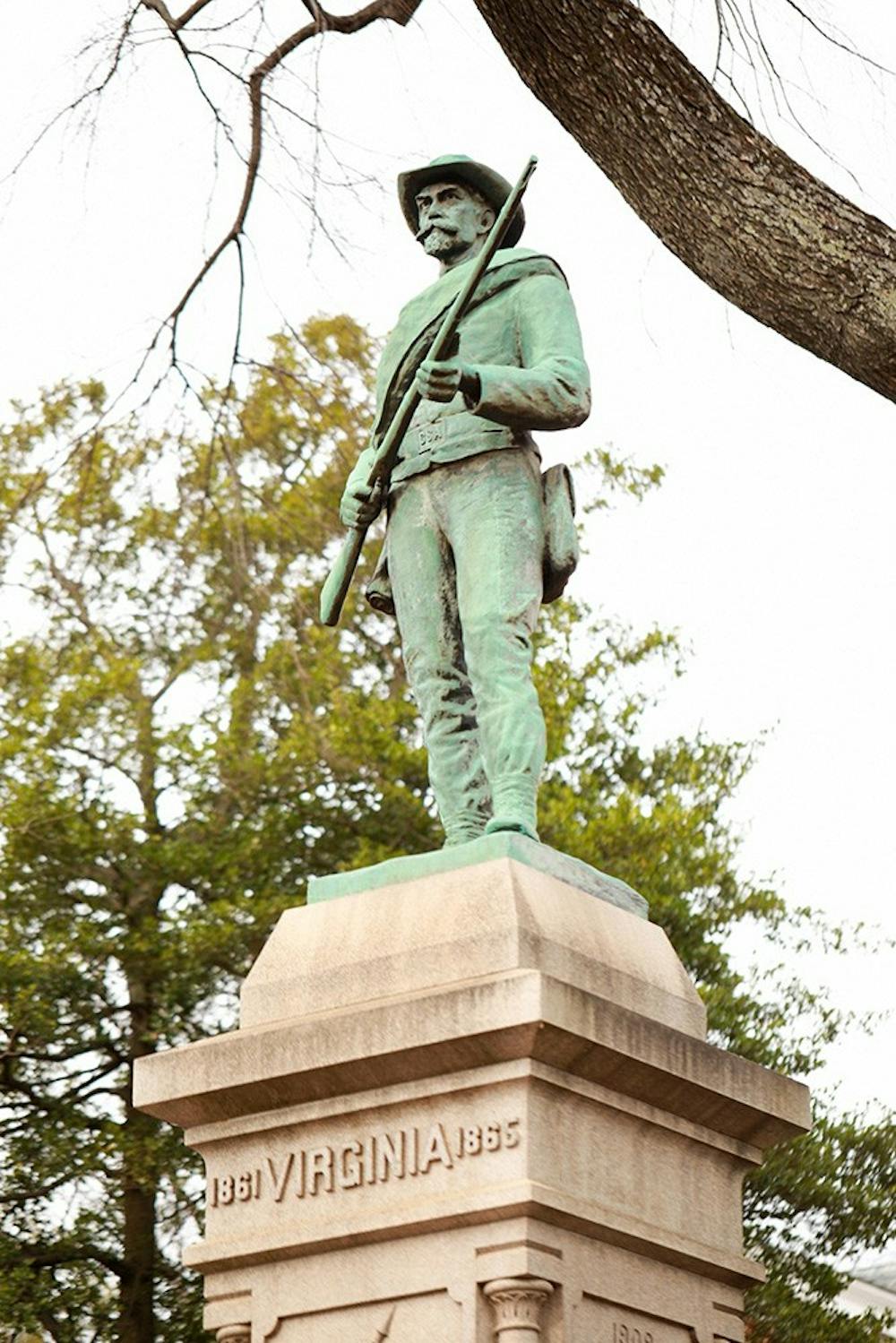Del. David Toscano (D-Charlottesville) has drafted an amended version of House Bill 1225 he introduced to the Virginia General Assembly earlier this month that would give localities the authority to remove war memorials. After awaiting committee referral, the bill was assigned to a subcommittee of the House of Delegates Committee on Counties, Cities and Towns.
Previously, the bill applied to all war monuments or memorials. The amended version limits the scope of eligible monuments and gives the public more of a role in decisions concerning changes to monuments.
“The amendments have modified the original bill so that it will only apply to Confederate monuments,” said Erin Monaghan, Toscano’s communications director. “It would only provide localities that authority concerning Confederate monuments rather than all war memorials and monuments. It would also require that there be a public process before the local government would vote on what to do with any given Confederate monument.”
A similar bill proposed by Sen. Jennifer Wexton (D-Loudoun) — which also would empower local governments to remove war memorials — was voted to be sent back to its committee indefinitely by Senate Republicans in the Local Government Committee Jan. 16.
Senate Republicans rejected Senate Bill 444 by a 7-6 vote, effectively killing it.
Wexton’s bill would have allowed localities to remove, alter or relocate any war monuments and memorials.
Toscano’s bill would not only give local governments jurisdiction over the removal of Confederate statues, it would also allow them to determine how to contextualize and maintain such monuments if they decide to keep them.
Currently, the Code of Virginia prohibits authorities from removing any monuments or memorials of war conflict.
Following the defeat of Wexton’s bill in the Senate, more attention is being directed toward Toscano’s bill as one of the few remaining bills dealing with historic monuments and their removal.
Wexton’s bill was rejected a week after being assigned to the Senate Committee on Local Government.
In an interview with The Daily Caller Toscano noted the events of Aug. 11 and 12, when white nationalists gathered in Charlottesville to protest the removal of the Robert E. Lee statue in Emancipation Park.
“White supremacists came to my city [Charlottesville] last summer and wreaked deadly violence in the name of a statue,” Toscano said. “My bill would empower localities to remove these statues if they so choose, or to keep them if they want to as well.”
The Charlottesville City Council voted in 2017 to remove statues of Lee and Thomas “Stonewall” Jackson from public parks near the Downtown Mall. However, an ongoing legal dispute over whether the city has the authority to take down the statues of the Confederate generals has prevented the city from moving forward with its plans.
The amended version of the bill will not be publicly available until it is reviewed by its assigned committee. At press time, the bill had not been put on the House Committee on Counties, Cities, and Towns’ weekly agenda.
“The amendments will be presented when the subcommittee has a hearing that includes that bill,” Monaghan said. “So far, the committee has six bills on this Wednesday’s agenda. Currently, the bill is not on the committee’s agenda to be heard.”
Republican members of the Senate Local Government Committee did not respond to request for comment.







